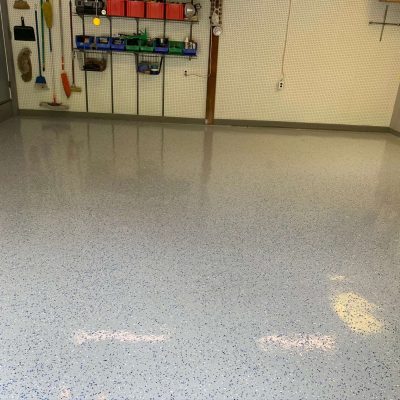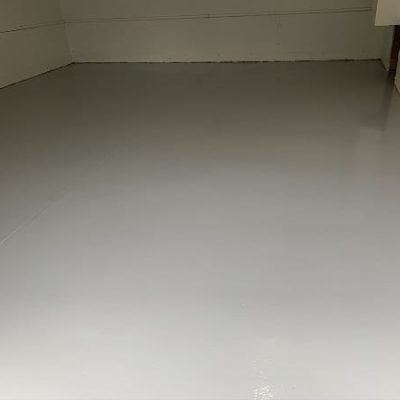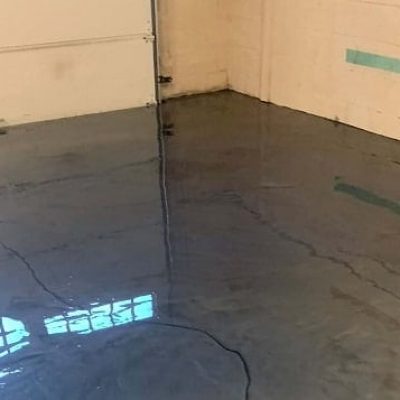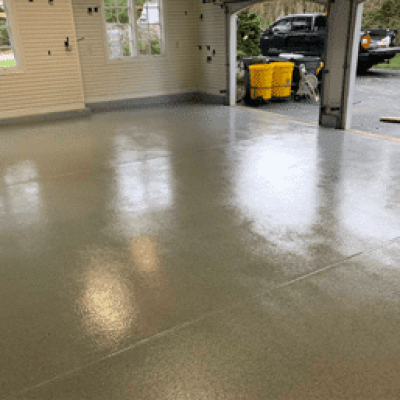Garage Floor Coating Company
Garage Floor Coating Company Serving Philadelphia, PA & the Surrounding Areas
Epoxy floor coatings for residential garages and basements has become popular, especially as the need for entertainment space that has multiple uses. As epoxy floor coatings began to be used in high-end industrial and commercial spaces – like car dealership and even showrooms – homeowners saw it as a good solution for their garages too.




Many exotic car collectors started the trend of epoxy coating as a way to have an attractive and durable setting for their expensive or restored vehicles. As garages went from being a place to park your car or store outdoor equipment, some residential users wanted to have their storage space stay clean and neat as well. That made sense since “low maintenance” is a key characteristic of an epoxy coated floor. You bring less dirt into the house.
Garages are used for entertainment or sport areas as well. With the advent of the durable and good-looking finish epoxy provides, it’s only natural as consumers became more interested in having what was once an “okay” casual space became more important as a regular showpiece entertainment venue.
Some of the big pluses that drove the use for garages was the desire for an attractive space along with the fact that epoxy-coated floors are very comfortable to walk on, and easy to maintain. As developments featuring newer, bigger, and more well-appointed homes became the norm, the appeal of a relatively inexpensive decorative décor grew.
The growth of epoxy coating for garages was also the wearability and resistance to chemical and abrasion damage. For older garages, an epoxy coating can cover defects in old slabs, especially with pre-application use of epoxy fillers. An epoxy mortar, mixed with sand, can repair even deep cracks safely.
Finally, one other benefit to epoxy coatings is that of being slip-resistant. Once the surface has been sealed and cured, there is much less of a chance for slipping, as long as the flooring is not abused – through scraping, gouging, or use of cleaners or solvents that are NOT recommended for epoxy or any floor surface.
Paint vs. Epoxy
Consumers found that commercial users were investing in epoxy coatings because of the longevity of an application. While paint may be a less-expensive method of covering a garage floor, it can’t fill cracks at all and even if it is an “industrial” coating level formulation, it has a very short usage life.
Once Philadelphia Epoxy Flooring has done an inspection and determined that the condition of a garage concrete slab is good enough to warrant an quality epoxy application, we also do ALL the work to get it ready for coating. Once we have thoroughly prepped a slab for coating, we can provide a floor that will last for years.
Time to Prepare
Vapor Transmission Testing
Determining the rate vapor transmission rate prior to any epoxy coating installation is critical. If transmission rates exceed specific levels, then an epoxy vapor prime coat should be applied. As a precaution, Philadelphia Epoxy Flooring installs a concrete vapor control primer over 90% of our floors, just be safe.
This phase of the process is extremely important and commonly overlooked due to the cost of material and additional time involved over ONE and Two-day systems.
Garage Floors with New Concrete
Residential customer may decide that they want an epoxy coating for their refurbished garage or in their new home before it is ever used. A new slab needs to cure for at least 30 days prior to coating. Epoxy CVC (Concrete Vapor Control) primers can help mitigate those risks as well.
Older Floors
Any serious structural problems with the floor, older garage floors can be filled and the surface can be prepared as usual.
Application
Typically, an application process requires three days – one for patching and initial detail work plus the first epoxy prime coat, then two more additional coating days. Producing a durable floor requires coats of epoxy, which must cure overnight. The final step is the application of a polyaspartic top coat. Our testing and experience have proven that this is by far, the best application for durability, longevity and appearance. We understand that less installation time equals more jobs to fill. However, it makes more sense for us to let long-term quality translate into more referrals and happier customers. Our experience tells us that focusing on quality over quantity truly rules the days ahead.
Some quick-talking contractors may try to sell a single or two-day process with one “special” type of coating. Chances are this type of application will lead to disappointing results and a short service life. While we are independent regarding the products used within our application, various manufacturers have tried to sell us on the idea of a using one-product type coating rather than our hybrid system. We continue to test and try them and have yet to discover a shining star over our long-term hybrid system.
Colors and Patterns
Epoxy flooring look good which is a strong reasons for their growing. With many colors and the ability to add multitudes of selection, most aesthetic desires can be met. There are many types of colors and the addition of a wide variety of colored flakes can make a strong and positive statement.
Fortunately, both the epoxy coating and the color flakes give you great durability as well as an attractive appearance. Add in the resistance to virtually all chemicals and cleaners (check the labels of ANY that you consider using BEFORE applying them) and it’s easy to see why epoxy coatings are so popular.
Maintenance and Cleaning
A properly applied epoxy coated garage or basement floor gives you GREAT finish that is easy to clean and maintained. It is important to do light cleaning on a regular basis – vacuuming or sweeping of the surface and rinsing with water – to avoid abrasion from dirt or larger particles.
Depending on the use of the garage, heavier cleaning will only be required occasionally. If regular vehicle maintenance is done, quick clean-up before fluids (e.g. brake fluid) or solids set too long is highly recommended. In the case of slush/snow and salt drippings, more vigorous cleaning may be required – soft push-brush and vacuuming are good examples. Our floors can also be lightly power washed.
Clean-up for serious spills – automobile or equipment gasoline, oil, or greases –may require the use of strong products such as degreases or heavy-duty cleaners. It is always a good idea to check labels or do an online search to make sure that any cleaners of this type are okay for usage on epoxy flooring. (Use of non-caustic cleaners is very important for any floor surface)
These days, many “safe” green cleaning products, including degreasers, are available and these should be considered as good items to use to avoid degradation of the flooring along with helping our environment.
